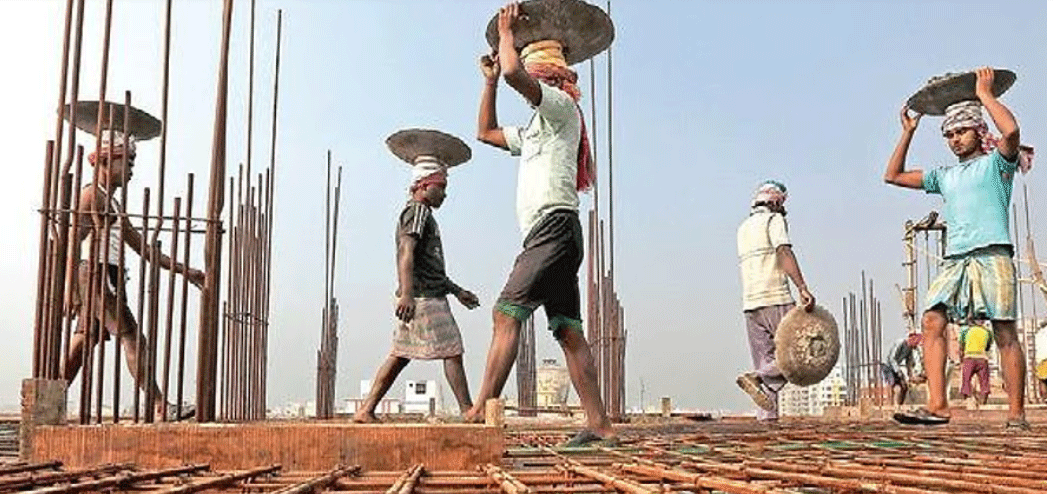Bhubaneswar: A large-scale drive by Odisha authorities to identify and detain suspected illegal immigrants, particularly those of Bengali-speaking origin, has created significant tension with neighboring West Bengal and is reportedly causing a shortage of labor in Odisha’s real estate sector.
Currently, Odisha Police are undertaking a massive drive to identify and detain suspected illegal immigrants.These drives and the associated fear and harassment disrupting the existing labor supply chain. When Bengali-speaking workers, irrespective of their nationality, face scrutiny and potential deportation, it creates an environment of uncertainty that can deter them from seeking work in certain regions. This can further exacerbate labor shortages in the real estate sector.
In March 2025, Chief Minister Mohan Charan Majhi informed the Odisha Legislative Assembly that a total of 3,738 Bangladeshi infiltrators had been identified across the state. The highest numbers were reported in Kendrapara (1,649) and Jagatsinghpur (1,112) districts.
Over 400 individuals suspected of being illegal immigrants have been rounded up for verification, with Odisha police stating that foreign nationals with established identities will be deported within 30 days. Four Bangladeshi nationals were specifically detained in Paradip.
While exact figures for Bengali-speaking migrant workers in Odisha are difficult to pinpoint, West Bengal Chief Secretary Manoj Pant’s letter to his Odisha counterpart, Manoj Ahuja, highlights the substantial presence of these workers in various sectors, including daily-wage earners, rickshaw-pullers, and domestic workers, across coastal districts such as Jagatsinghpur, Kendrapara, Bhadrak, Malkangiri, Balasore, and Cuttack, and regions around Paradip and Bhubaneswar.
Studies on internal migration in India indicate that West Bengal is a significant source of out-migration for work, with Bengali-speaking laborers often seeking opportunities in other states, including Odisha, to fill labor demands in sectors like construction. This suggests a considerable number of Bengali-speaking workers contribute to Odisha’s economy, even if precise statistics for Odisha alone are not readily available.
Shri Pant’s letter expressed deep concern over reports of these individuals being illegally detained and unjustly labeled as Bangladeshi infiltrators, even when possessing valid Indian identity documents such as Aadhaar cards, ration cards, voter IDs, electricity bills, and PDS documents. He highlighted that many are being targeted simply for speaking Bengali, their mother tongue, and are sometimes subjected to unreasonable demands for ancestral land records.
The West Bengal government has also provided verification reports confirming the identity and citizenship of these individuals, but a lack of positive action from Odisha has been alleged. Samirul Islam, chairman of the West Bengal Migrant Workers’ Welfare Board and a Trinamool Rajya Sabha MP, has been vocal on the issue, even threatening to move the Calcutta High Court to address the alleged illegal detentions. Two habeas corpus petitions have already been filed in the Calcutta High Court seeking the production of detained Bengali-speaking migrant workers.
The crackdown in Odisha, a part of a wider nationwide effort, is reportedly impacting various sectors, including real estate, as Bengali-speaking workers, who form a significant portion of the migrant labor force, are fleeing the state due to fear of harassment and detention. This exodus could lead to labor shortages and project delays in Odisha.
This situation underscores a complex challenge involving national security concerns, human rights, and interstate cooperation in managing migrant populations.


